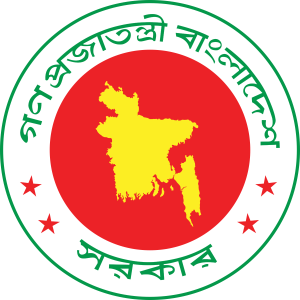
The government’s expenses on interest payments rose more than 22 per cent to Tk 40,792 crore in the first six months of the current fiscal year owing largely to higher expenditures on treasury bills, official figures showed.
The interest expenses stood at Tk 33,433 crore in the July-December half of 2021-22.
The interest expense was higher than the annual target because of a rise in interest rates for government securities, according to the quarterly debt bulletin of the finance ministry.
Treasury bills and bonds are one of the major tools the government uses when it comes to borrowing. The interest on the securities has gone up recently owing to the liquidity shortage in the banking system.
The sharp depreciation of the exchange rate against the US dollar was one of the factors behind the liquidity shortage.
The average yield of the treasury bills went past 7 per cent in November last year compared to a range of 6 per cent to 7 per cent previously.
The interest expenses in July-December were half of the annual allocation of Tk 80,875 crore.
Of the interest expenses, Tk 38,147 crore were made against domestic borrowing, which accounted for 52 per cent of the annual allocation of Tk 73,675 crore for 2022-23.
The payments on the loans in the banking system were Tk 14,657 crore. It was Tk 23,490 crore for the non-banking source.
External interest payments stood at Tk 2,645 crore, only 6 per cent of the total interest expenses in July-December.
BORROWING DECLINES 36%
Between July and December, the government borrowed Tk 48,024 crore, both from domestic and external sources, down more than 36 per cent from Tk 75,701 crore a year ago.
The government borrowed Tk 20,948 crore in the first half of FY23, down from Tk 25,445 crore a year earlier.
However, borrowing from both non-bank sources and through the sales of national savings certificates showed negative growth.
The government has set an annual borrowing target of Tk 40,001 crore from non-bank sources. The net borrowing in the segment was a negative Tk 4,497 crore.
Similarly, its net borrowing through national saving certificates was a negative Tk 3,107 crore. The sales target for the whole financial year is Tk 35,000 crore.
Various reform initiatives such as the online issuance process, logical investment limit, and introduction of multi-tier interest rates contributed to the reduction of the net sales of the savings instruments, said the bulletin.
The government’s external borrowing declined 14.17 per cent to Tk 27,078 crore in the first half of FY23. It was Tk 31,548 crore in the same half of 2021-22.
The total outstanding debt stock was Tk 13,59,898 crore as of December last year.
The outstanding domestic debt stood at Tk 864,105 crore. Of the sum, the government owes Tk 438,908 crore to the banking sector and Tk 425,196 crore to the non-banking source.
The outstanding external debt was Tk 495,794 crore as of 2022.
According to the bulletin, the total debt-to-GDP ratio was 30.56 per cent based on the FY23 GDP projection by the Bangladesh Bureau of Statistics and is significantly lower than the 55 per cent threshold of the International Monetary Fund (IMF).
External debt stock is around 11.14 per cent of GDP at the current market price, according to the bulletin, highlighting the well-debt position of the country.
Bangladesh has secured approval from the IMF for a $4.7 billion loan.
“The approval of the loan is a testament to Bangladesh’s strong macroeconomic performance amid global economic and political volatility, and builds confidence among development partners in the country’s economy,” the finance ministry’s bulletin said.
Source: The Daily Star

